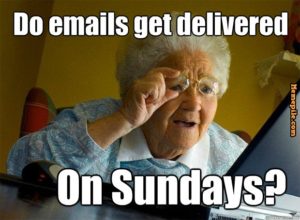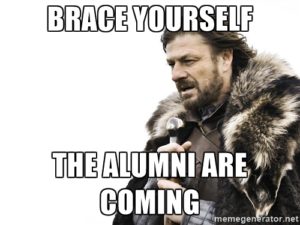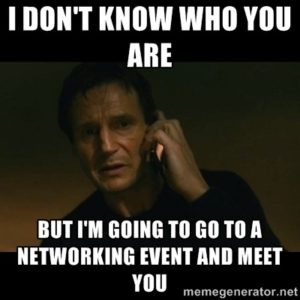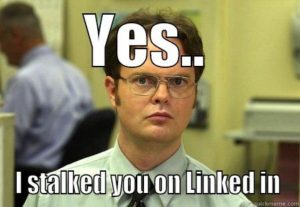One of the hallmarks of the Scripps experience is the three mandatory semesters of Core. Every Scrippsie knows the trials and tribulations that the Core experience puts us through. Yet, the skills learned from our participation in Core can be applied to and help us with our four years at Scripps, as well as beyond the 5C classrooms, in our careers.
1.Life is interdisciplinary:
Core, at its core ;), is interdisciplinary. It is all about the profound connections between different fields of study, and how examining one subject area can enrich our understanding of larger concepts. Identifying and analyzing commonalities is a great skill to have. No matter what field you choose to pursue, interdisciplinary thinking will be an asset. The strongest thinkers are the ones that have a broad scope of the world. They don’t have academic tunnel vision. Instead, they are masters at using their extensive understanding of their discipline to inform and enrich their understandings of other disciplines. Whether it be in your other courses, or in the workplace, it is an advantage to be able to pull outside knowledge to the issue at hand.
2.Collaboration with peers and professors:
In core classes, collaboration is integral, and unavoidable. In the very design of Core I, discussion and lecture collaborate to provide revelations about the texts. In discussion, students collaborate with one another to arrive at conclusions by examining, and sometimes challenging, the texts. The professors’ lectures, ranging in disciplines, serve to illuminate the texts. Often, professors collaborate with students by posing questions for deeper thought in lecture or in smaller discussion. By lecturing, professors are able to explain why community matters to them and to their discipline. Essentially, they are a part of the larger discussion that is Core. Interacting with both our peers and professors about delicate identity issues that often relate to sexual orientation, gender, race, class, or nations prepares us for “the real world” where consciousness of diverse experiences is one of the largest assets in a workplace. Perhaps one of the most important teachings from Core isn’t in the content of the course, but in the skill of good-natured debate and discussion-based collaboration that it demands. Knowing how to present your ideas to peers and employers, both verbally and in writing, is a skill that Core trains us well in.

3.Core makes you a better human being:
Core I’s focus on the concepts of the nation, community, and identity provide great tools for being working members of society. As soon to be college graduates, it is vital that we put into play our newfound understandings of civilization and inequality in our endeavors. This learning can be enriching to our more advanced courses later on at Scripps or in graduate school. This learning can also enhance our pursuits in our careers, perhaps by aiming to include historically excluded identities from the academic and work-related careers we create and become parts of. For example, Professor Rachlin’s recent lecture to Core I students, “The Class Closet: How Do We Get In and Why Don’t We Come Out?”, supplies us with an awareness for the wealth disparity in our nation. This study can be applied to how we–who are lucky enough to go to college–should move through the world with a deeper understanding of class in our heads. Professor Rachlin’s lecture also provided us with the language to talk about tough issues like class with our peers and professors. Knowing the correct language to use to collaborate thoughtfully and respectfully is essential to going far in our careers.







